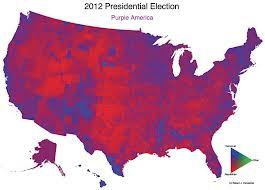
Two very different points of view caught my attention yesterday.
It started with an article in the Economist which highlighted the highly partisan and divisive nature of current US politics. I saw the second later in the day in an email from Sojourners which included this quote from the French philosopher and social activist, Simone Weil. “The love of our neighbor in all its fullness simply means being able to say, ‘What are you going through?’”
These contrasting points of view were on display in the two major events of this past week. On the Economist’s side was the election. The conclusion of a long and drawn out and partisan and sometimes very ugly presidential campaign. The second was seen in response to the devastation caused by Superstorm Sandy as it slammed into New Jersey and spread destruction through a sizable portion of the Northeast.
These two events present two very different snapshots of our country.
If the snapshot you chose to believe to be true is the rancor of the presidential campaign, then the United States is hopelessly divided between us and them.
Between traditional values and changing morality.
Between a shrinking white citizenry and a growing non-white population.
But there is another way to look at who we are.
And that other way is seen in the way our communities and our country have rallied to respond to the devastation caused by Superstorm Sandy.
When water is distributed it is not done so along party lines.
When food is collected and distributed, no one asks Pro-Life or Pro-Choice.
When shelter is offered it is to any and all who find themselves in need.
We didn’t have to ask.
We could see what the other was going through.
I know our differences are real.
And that our views and our values matter to each of us.
And, I know how deeply those differences can divide.
But, with that, I found myself thinking about the citizens of Dixville Notch, NH.
Last Tuesday, the citizens of Dixville Notch cast 10 votes for a presidential candidate.
5 for Mitt Romney.
5 for Barack Obama.
Now, I know enough about communities and neighborhoods and people to know that, in many cases, you can guess how another person might vote especially in a town the size of Dixville Notch. The political divide is as clear there as it is in the rest of the country.
And yet, they are still neighbors.
They will still wave to each other when they pass one another on the road.
They will still speak to each other when they see one another at the post office.
They will still be the first to respond when a neighbor is in need.
Why?
Because they have chosen to be neighbors first.
They have dared to ask (and to know) “What are you going through?”
And, what I think is true in Dixville Notch is true in city after city and neighborhood after neighborhood and town after town and village after village all across our nation.
Each Sunday I walk into the church where I am pastor and I know some of the folks there are Republican and some are Democrats. Some voted for Mitt Romney and some voted for Barack Obama. And some probably didn’t take the time to vote.
Yet, we are there together.
And I know…
Not just because I have seen it happen again and again;
But because it has happened to me;
That when something happens – good or bad – we are there for each other.
And no one ever asks, “How did you vote?”
Maybe that is what we need.
To remember we are neighbors first.
And citizens second.
And Republican or Democrat somewhere further down the list.
Leave a Reply